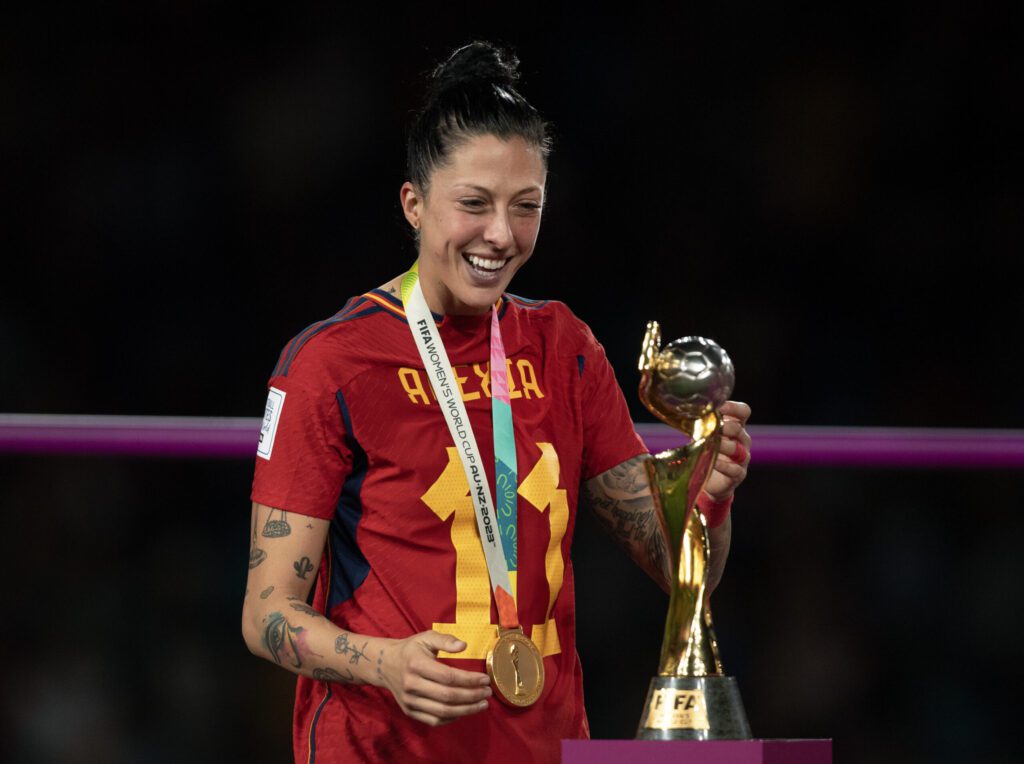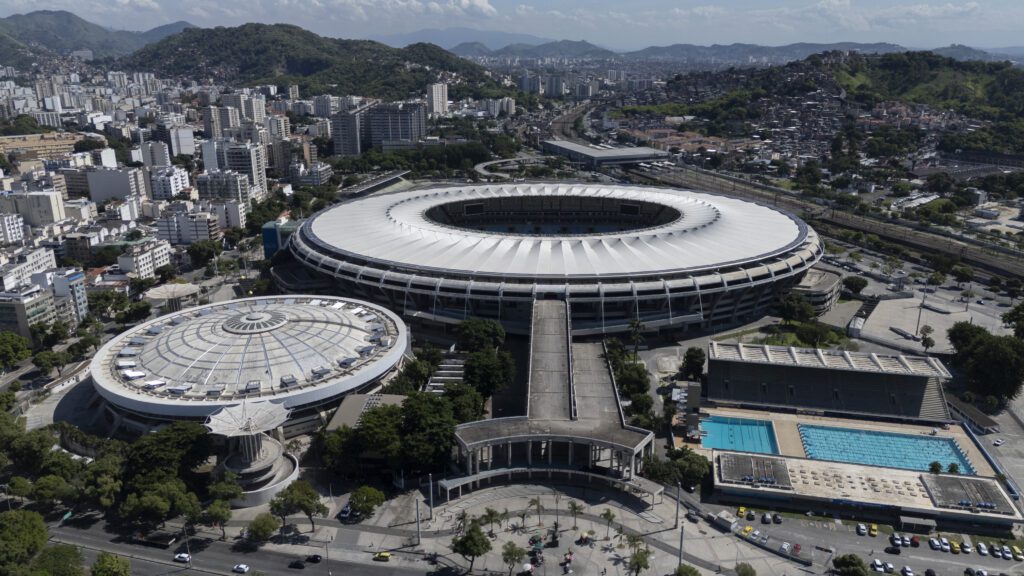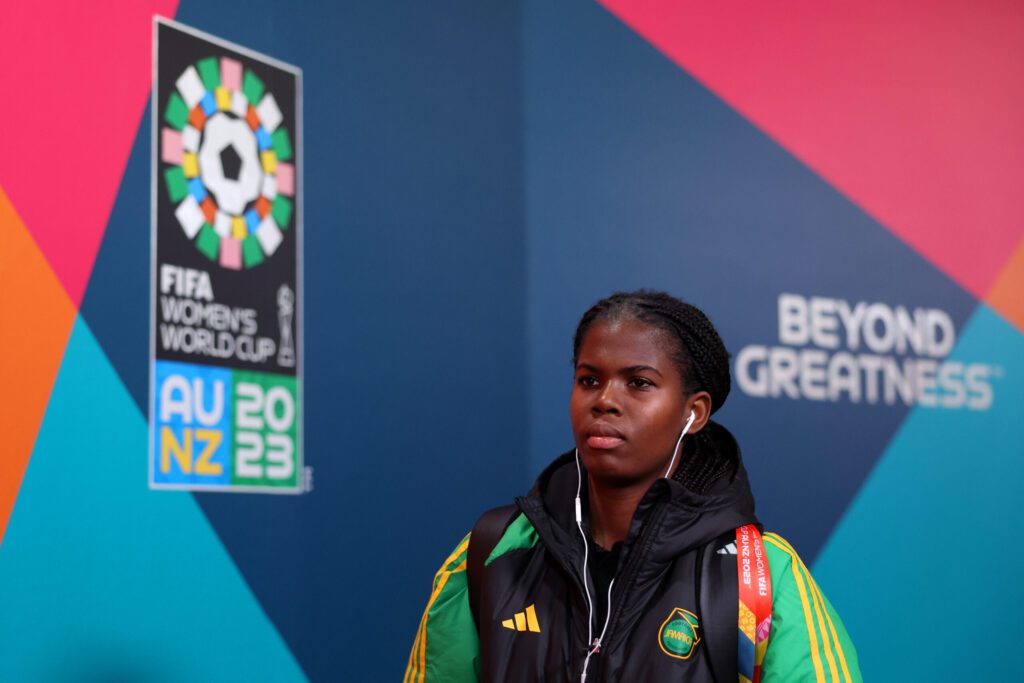Luis Rubiales, president of the Spanish football federation (RFEF), caused a stir when he kissed Spain star Jenni Hermoso on the lips during the team’s World Cup celebration Sunday. Spain defeated England 1-0 for the country’s first Women’s World Cup title.
In the hours after the celebrations, Hermoso, Spain’s all-time leading goal scorer, downplayed the incident.
“It was a mutual, totally spontaneous gesture because of the huge joy of winning a World Cup,” she said in a statement to news agency EFE. “The ‘presi’ and I have a great relationship. … It was a natural gesture of affection and gratitude.”
Jenni Hermoso recreated Lionel Messi's World Cup dream 💭🏆 pic.twitter.com/QHeyQP2EQm
— ESPN FC (@ESPNFC) August 21, 2023
Hermoso’s remarks come amid widespread criticism over the incident. During Spain’s medal presentation, players approached Rubiales one by one. Rubiales hugged and kissed many of the players on the cheek. When Hermoso approached, he hugged her, and then grabbed her head and kissed her on the mouth.
He at first called those upset with the gesture “idiots,” but has changed his tune amid growing backlash. Spain’s minister for culture and sport, Miquel Iceta, for instance, described Rubiales’ kiss as “unacceptable.”
“I made a mistake, for sure,” Rubiales said in a video released to the media. “I have to accept it. In a moment of such emotion, without any bad intention or bad faith, what happened, happened, in a very spontaneous way. [There was] no bad faith from either side.
“Here we saw it as something natural and normal. But on the outside it has caused a stir, because people have felt hurt by it, so I have to apologize; there’s no alternative. I have to learn from this and understand that a president of an institution as important as the federation — above all in ceremonies and that kind of thing — should be more careful.”
Hermoso had previously said she “didn’t like” the kiss during an Instagram livestream on Sunday.
The controversy comes against the backdrop of turmoil within RFEF. Head coach Jorge Vilda selected only three of 15 players for the World Cup team who had expressed concerns with his leadership in a written letter to RFEF.




